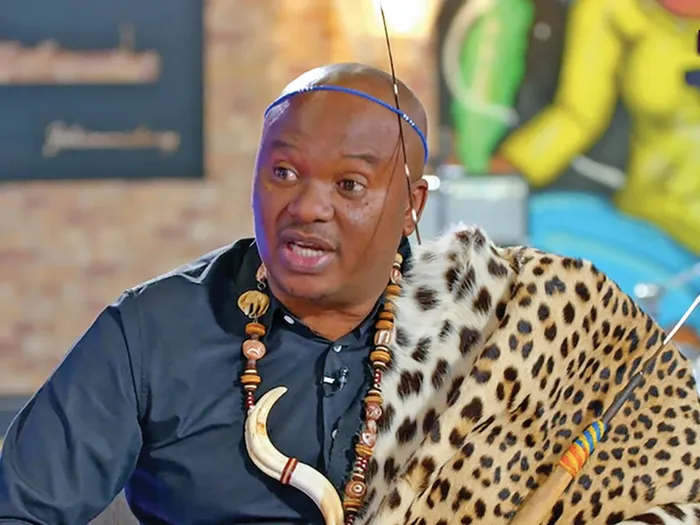Controversy erupts over South Africa's Constitutional Court ruling on surname adoption

A recent ruling by South Africa's Constitutional Court allowing men to adopt their wives' surnames has sparked widespread controversy, with cultural leaders warning of its potential to disrupt societal norms. In Picture: CONTRALESA's General Secretary, Zolani Mkiva
Image: Archives
A recent ruling by South Africa's Constitutional Court, which allows men to adopt their wives' surnames, has stirred controversy, especially among cultural and community leaders, who voiced strong opposition to what they deem a destructive judgment.
CONTRALESA's general secretary, Zolani Mkiva, has been particularly vocal in hitting out at the ruling and announced the body's intention to challenge it in court.
on Thursday, the Constitutional Court deemed certain sections of South Africa's Births and Deaths Registration Act, specifically those that offered women automatic rights to change their surnames post-marriage, divorce, or widowhood unconstitutional.
Before this ruling, women could seamlessly adopt their husband's surname or revert to a previous surname without bureaucratic hurdles, whereas men had to apply to the Director-General of Home Affairs for any surname change, a process considered cumbersome and discriminatory.
In his response, Mkiva described the decision to allow men the option to take their wives’ surnames was laughable. He warned that it could unravel the very fabric of families and communities.
“Any Parliament that would take any decision to make that enforceable would actually invite citizens to collapse that Parliament,” he cautioned.
He maintained that such innovations contradict the foundational cultural and structural norms that govern African societies.
“This ruling sows the seeds of division,” Mkiva asserted, critiquing its basis on a flawed understanding.
He believes the decision cast aspersions on men and women, whose identities were rooted in clan affiliations that persist through marriage.
“No woman loses her identity when she’s married; rather, they are still identified by their clan names,” he added, suggesting that the ruling reflected a misinterpretation of cultural contexts and an over-reliance on Roman-Dutch laws.
Joining the fray, Professor Nokuzola Mndende of the Icamagu Heritage Institute highlighted the court’s failure to acknowledge South Africa's rich cultural diversity. Mndende stated, "What the Constitutional Court did was not democracy. It was clearly not equality; that’s dictatorship."
She criticised the ruling as being disconnected from the country’s cultural frameworks, proposing that the court’s decision overlooked community opinion and favoured a certain race and class.
Nthabeleng Likotsi, a pioneering businesswoman and South Africa's first female bank owner, also weighed in with her views.
Likotsi warned about the implications for families in which men adopt women’s surnames without engaging in necessary cultural ceremonies.
“Now all these illegal foreigners who marry South African women are going to assume the woman’s surname,” she lamented, asserting that it could lead to a loss of identity and ancestral ties for families.
Furthering the discourse, Advocate Muzi Sikhakhane, during the annual Steve Biko Institutional Public Lecture at Nelson Mandela University, described the constitution as failing to represent the majority of South Africans.
“If you want to know whether the constitution was the best in the world, ask a person who will sleep without food tonight,” he remarked.
Sikhakhane expressed that the constitution was never “ours” as it was not constituted by South Africans themselves, highlighting a disconnect between legal frameworks and the lived realities for many citizens.
DAILY NEWS